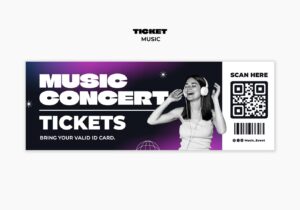A resume is the summary of one’s skills, education, background, experience, e.t.c, used as a tool for job seeking. But a resume is more than just a tool. It provides the first impression to the recruiters and helps them decide whether to schedule an interview or hire a person or not. So, it is essential to pay attention to the structure and information of your resume. The biggest dilemma job seekers face is that they don’t know what information should they add to the resume? how much should be the length? What information to exclude from your resume? how to showcase more skills through fewer words? and how to frame your resume if you are a fresher or over-experienced? Have you been in such a dilemma too?
If yes, then you are at the right place. We have sorted out 8 Dos and Don’ts to help you understand what information and structure you should add or exclude from your resumes.
1. Resume Summary Or Objective
Dos-
- A resume summary is the first thing recruiters read or notice on one’s resume so it is essential to keep it precise but catchy.
- Include your current job profile with an adjective. For example, A Experienced Software engineer, e.t.c.
- Include your skills set and experience in your summary.
- List a few relevant and good achievements in your work field.
Don’ts-
- Do not list all your achievements, including only the ones relevant to the profile you are applying for.
- Do not write a whole career summary but only use relevant keywords.
2. Resume Format
Dos-
- Keep the chronology consistent.
- Use an easy-to-read font.
- Use customized formats according to the information you want to add to your resume.
- Use Online Resume Builder tools resume samples.
Don’ts-
- Do not use too large or too small fonts.
- Do not use functional resume formats.
3. Experience Section
Dos-
- Only include the job experiences relevant to the position you are applying for.
- Customize your resume every time you are applying for a new post.
- Include the positions of responsibilities, skills, and projects you have completed in your previous job relevant to the current position you are applying for.
- You can add up a previous job experience different from your current experience with some transferable skills that will show how your past experience will help you with your new job. But only include it if your resume is not too long.
Don’t-
- Your job history ain’t your life history so do not include every experience you have.
- Do not include the job positions totally irrelevant to the job you are applying for.
- Do not write long technical descriptions for the jobs. Keep it short and to the point.
4. Qualification
Dos-
- You must include the education relevant to the job.
- You can include your graduation, and higher studies if you have pursued them.
- You may also include your high school and senior secondary if you just graduated or graduating and starting off with your career. You can also include them if you don’t have much to write in your experience section.
- Your educational information must include the name of university or college, the name of the degree you are pursuing or complete, year of completion, board, and your particular field of study.
- You can also include your ongoing degrees but do mention that you are currently pursuing it and the year in which it will be completed.
- You may also include the courses or classes you have taken relevant to the job you are applying for.
Don’ts-
- Do not include the courses you have done that are irrelevant to the job. For example, if you are applying for the post of software engineer, there’s no need to mention the specialized course you took for learning piano.
- Do not mention your GPA if it’s too low.
- You don’t have to include your high school and senior secondary information if you are a postgraduate or Ph.D.
- Do not just write the name of the degree you have but provide complete information.
5. Personal Information
Dos-
- Mention your full name same as on your official documents.
- You must include your phone number and email id.
- Adding address is not necessary unless it is mentioned in the job application but including your location (Like your city, state, and Pincode) may help the recruiter know if you are a local candidate or not.
Don’ts-
- Don’t leave your name incomplete.
- Do not change the spelling of your name, write it the same as on your other documents.
- There is no need to include your complete address.
- Do not give other’s numbers but provide your own.
- Don’t include your sex, race, religion, caste, or nationality as that may not be needed for the job unless it is mentioned in the job application.
6. Keywords And Vocabulary
Dos-
- Use simple and easy-to-read language as not everyone may not be familiar with technical terms.
- Use good vocabulary but also keep it simple.
- Spread keywords that are mentioned in the job description throughout the resume.
- Use decent and professional adjectives and direct sentences to describe your past job responsibilities.
Don’ts-
- Do not use highly technical and hard-to-understand language.
- Don’t use difficult English words. This ain’t your literature test.
- Don’t use too simple language, make it look attractive.
- Do not stuff your resume with keywords that don’t fit in as a recruiter can easily figure out if you do so.
- Do not use cliches or idioms or indecent adjectives like “team-player”.
With the aforementioned dos and Don’ts, you can easily frame and write your perfect resume to get your dream job. A resume plays a significant role in determining whether a person would go to the next level of the hiring process or not. So, giving your 100% while writing a resume is necessary. But if you are not confident about framing your resume, you can also hire an executive resume writing India services. They will professionally help you write your resume based on your skill-set, experience, and goals. These professionals know what exactly the recruiter wants to see in a resume and they also know how to use keywords properly to get through Application tracking Systems.











